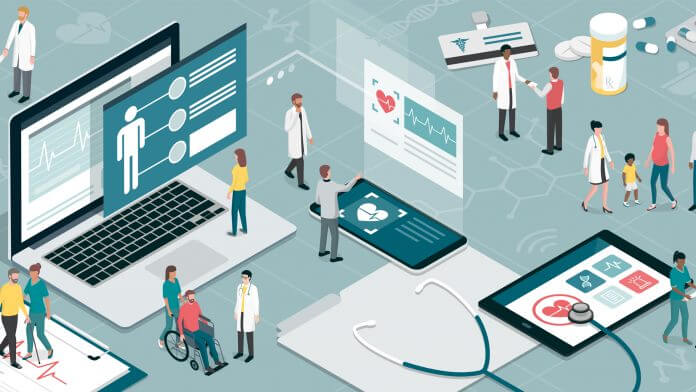Electronic Health Records (EHRs): Revolutionizing Healthcare Information Management
Introduction
In the digital age, electronic health records (EHRs) have emerged as a cornerstone of modern healthcare systems. These digital repositories of patient information have transformed the way healthcare providers manage, access, and share critical medical data. In this article, we will explore the significance of electronic health records, their benefits, challenges, and their impact on the healthcare industry and patient care.
Understanding Electronic Health Records (EHRs)
Electronic health records, often referred to as EHRs, are digital versions of a patient’s paper chart. They contain comprehensive information about a patient’s medical history, diagnoses, medications, treatment plans, immunization dates, laboratory results, and more. EHRs are designed to be accessible to authorized healthcare providers, enabling efficient and secure sharing of information across different healthcare settings.
Benefits of Electronic Health Records
- Improved Patient Care: EHRs provide healthcare providers with instant access to a patient’s medical history, allowing for more informed clinical decisions. This leads to better patient care, as physicians can quickly identify allergies, previous treatments, and chronic conditions.
- Enhanced Coordination: EHRs facilitate seamless communication among healthcare providers within the same institution or across different healthcare settings. This coordination ensures that patients receive consistent and timely care.
- Efficiency and Productivity: EHRs reduce the need for manual record-keeping, making administrative tasks more efficient. This allows healthcare professionals to spend more time with patients and less time on paperwork.
- Safety and Accuracy: EHRs reduce the risk of errors associated with handwritten notes and prescriptions. Automated alerts for drug interactions and allergies help prevent adverse events.
- Patient Engagement: Many EHR systems offer patient portals, allowing patients to access their own health information, schedule appointments, and communicate with their healthcare providers, fostering active patient engagement.
- Research and Public Health: EHRs enable researchers to access de-identified patient data for medical studies and help public health officials track and respond to disease outbreaks more effectively.
Challenges and Considerations
- Privacy and Security: Protecting patient data from breaches and ensuring compliance with privacy regulations like HIPAA is a constant challenge for healthcare organizations.
- Interoperability: The seamless exchange of information among different EHR systems remains a challenge, hindering the sharing of patient data across healthcare institutions.
- Implementation Costs: Implementing EHR systems can be expensive, including the initial setup, ongoing maintenance, and staff training.
- User-Friendliness: Some EHR systems have been criticized for their user interface and usability, potentially leading to decreased productivity and physician burnout.
- Data Overload: The sheer volume of information within EHRs can sometimes be overwhelming for healthcare providers, leading to information overload.
The Future of Electronic Health Records
As technology continues to evolve, the future of EHRs holds several exciting possibilities:
- Artificial Intelligence (AI) Integration: AI can help analyze large datasets within EHRs, offering predictive insights, identifying trends, and assisting with clinical decision-making.
- Blockchain for Security: Blockchain technology has the potential to enhance the security and privacy of EHRs by providing a tamper-proof and decentralized ledger for patient data.
- Improved Interoperability: Efforts are ongoing to establish universal standards for EHR interoperability, making it easier for different systems to communicate with one another.
- Patient-Centered Care: EHRs will continue to empower patients, giving them greater control over their health data and care decisions.
Conclusion
Electronic health records represent a pivotal shift in the healthcare industry, enabling more efficient and effective patient care. While challenges like data security and interoperability persist, ongoing technological advancements and a commitment to improving healthcare information management will ensure that EHRs continue to play a central role in healthcare delivery, research, and patient engagement.
Share this content:

